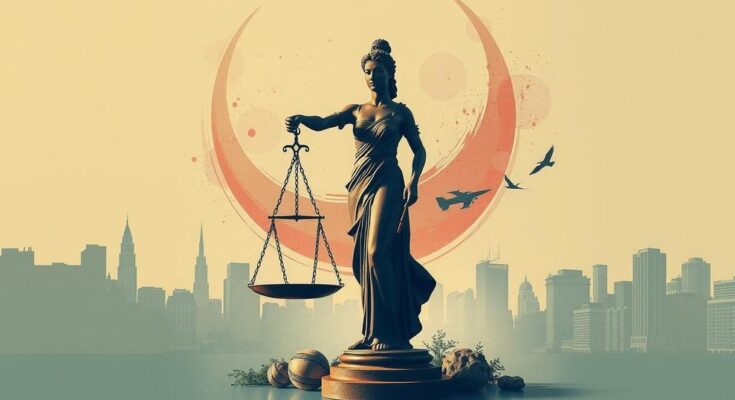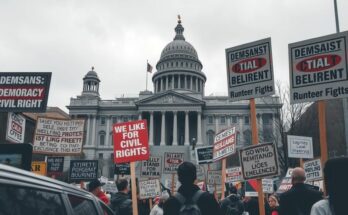In an unprecedented week of upheaval, President Donald Trump has unleashed a wave of assaults on human rights, marking a dark chapter in U.S. presidential history. His administration has taken significant steps, such as disengaging from the United Nations Human Rights Council, withdrawing funding from a UN refugee agency, imposing sanctions on the ICC’s chief prosecutor, and calling for reviews of crucial U.S. treaties, raising alarms over potential ethnic cleansing in Gaza.
The intensity of Trump’s actions during his second term surpasses those of his first, which also challenged human rights. While his initial presidency saw the withdrawal from the Human Rights Council and sanctions against ICC officials, the current administration pursues a more aggressive agenda aimed at disrupting established international human rights frameworks that have safeguarded universal rights for decades.
After a scathing UN report regarding extreme poverty in the U.S., the administration retreated from the Human Rights Council in 2018, labelling it biased. The U.S. did participate in the 2020 Universal Periodic Review (UPR), used to assess human rights records globally. However, it is doubtful that the current administration will take part in the upcoming UPR session in November, given its antagonistic stance.
Trump’s renewed sanctions against ICC officials in 2021 faced significant backlash, including legal challenges based on First Amendment rights from organisations like the ACLU. A federal court barred enforcement of these sanctions against academics, citing constitutional concerns, but the new executive order issued more recently exacerbates tensions surrounding international justice and poses threats to free speech.
An alliance of 79 nations condemned the sanctions, highlighting that such actions could lead to impunity for grave crimes and undermine the international rule of law, fundamental to global stability. Furthermore, 17 independent UN experts labelled Trump’s executive order an assault on global justice, highlighting its potential to destabilise human rights advocacy.
The Trump administration’s ideology aligns with an anti-rights agenda, driven by entities like the Heritage Foundation, advocating for a regression of international human rights, positioning national security as a shield against accountability. Previous attempts to revise human rights hierarchies favoured religious and property rights above essential human rights reveal a calculated effort to reshape the landscape of international law.
A recent executive order instructs a comprehensive review of all international bodies and treaties supported by the U.S., assessing their alignment with national interests. This review threatens to undermine crucial human rights mechanisms, potentially severing ties with organisations that play vital roles in monitoring human rights violations worldwide.
Historically, the U.S. has ratified only three out of nine core international human rights treaties, creating a landscape where existing treaties are largely unenforced, due to Senate reservations. The review initiated under the current Trump administration could further erode these commitments, escalating the threat to vulnerable communities worldwide.
Civil society leaders have voiced their concerns, emphasising that this erosion of rights could enhance global authoritarian regimes and destabilise safety for historically marginalised groups. A statement from 16 American UN experts succinctly encapsulates the situation, asserting that the administration’s actions undermine fundamental international principles and do nothing to advance U.S. interests abroad.
Trump’s approach, fuelled by anti-human rights initiatives, risks diminishing checks on those violating international laws while enabling the consolidation of his agenda, severely impacting civic accountability. The ongoing crusade against universal human rights presents dire implications not just for international stability but also for domestic peace and justice.
President Trump has initiated a focused assault on international human rights, including withdrawing from the UN Human Rights Council, targeting ICC officials, and reviewing critical treaties. His administration’s actions suggest a strategic move to undermine global human rights norms established over decades. These developments pose severe risks, including increased global authoritarianism and diminished protections for vulnerable communities.
In summary, Trump’s administration is aggressively targeting international human rights, tearing down decades of progress through disengagement from critical global frameworks and imposing sanctions that threaten accountability. With a troubling review of treaties and international organisations underway, the potential consequences could empower authoritarianism globally while destabilizing the nation’s commitment to universal rights. Urgent action is needed to halt these damaging trends.
Original Source: www.aclu.org



